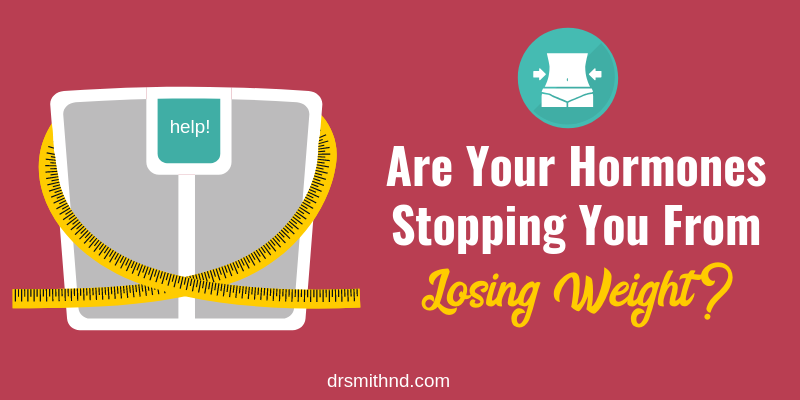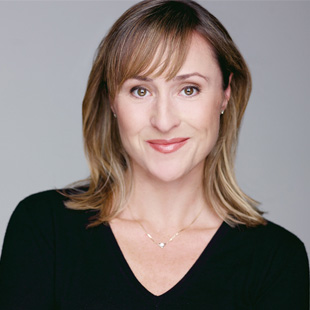Do you find that no matter how desperately hard you work on calories and exercise, you can barely move the needle? Do you look in the mirror and have negative self talk – often times without even realizing it? Calling yourself…fat?
FAT.
Many women (and quite a few men frankly) struggle with the F word. Such a powerfully negative three letter word. And the thing is, it truly is such a harmful word. It drips with judgement, contempt and shame because it infers the person who is struggling with their weight is lazy, gluttonous, just doesn’t care, or has failed themselves (and that is almost never the case).
One could safely argue that the mental burden of being shrouded in this toxic cloud of potent negativity is a bigger health risk than the fat itself, and the impact on our physical being.
But here’s the thing: often when someone can’t lose weight there is a tangible, measurable, metabolic reason…. that is treatable. You read that correctly. What if you are struggling so hard and your impaired ability to get to a healthy weight is, in fact, all because, or partially because of … your hormones? Because this is something I see and treat every single day, this is something you should seriously consider investigating.
Many hormonal imbalances make it extremely difficult for people to lose weight, and in some cases can even lead to an increased risk of gaining weight. And in many of these cases, as I’ve already alluded to, you could be running on fumes and working out daily and going exactly nowhere.
Here is a list of the five most common hormonal imbalances that affect weight loss, and tips to how to correct them.
1. Serotonin – not just about happiness
Serotonin is a powerful hormone that influences a ton of natural processes in our bodies. It is infamously known as the “happy hormone”, but it can impact not only our mood and emotions, but cravings, self-esteem, sleep quality and our appetites, all of which impact our ability to lose weight. If serotonin levels are too low, the messages sent by our brains start getting mixed up, which can lead to mood swings and sugar cravings.
How can we balance serotonin levels?
Serotonin levels can be balanced with plenty of sunlight, taking B vitamin supplements, regular exercising and eating more tryptophan-rich foods such as pumpkin seeds, turkey, eggs, lentils – the list goes on.
Increasingly both in research and in clinic, we are learning that practicing mindfulness, meditation, and yoga does help deal with mental health symptoms associated with low serotonin levels and will also help remove some of the mental barriers that are working against your ability to lose weight. In some cases, patients require – and greatly benefit from, botanical or prescription medications that increase serotonin – it is crucial to see your ND or GP if you’d like to learn about pursuing this route.*
2. Cortisol – not just about stress
Cortisol levels rise when we are in high stress situations and a sad fact about modern living is that most people are living in a state of sustained high stress. They never or very rarely get off the ride. This is not a small problem, that we as a society largely face. This escalates cardiovascular risk, digestive problems, insomnia, anxiety and yes, weight gain due to the sugar cravings that come or as many call it, “stress eating”. You see, cortisol is an alpha hormone or as I often say, it’s the conductor of the hormone orchestra. It has a tremendous influence on your other hormones – thyroid, insulin, estrogen, testosterone, progesterone and more. When headlines say high stress will have a global impact on destroying your health, this is really not to be taken lightly. High cortisol can mess you up. Badly.
How can we balance cortisol levels?
While we can’t eliminate stress from our lives the first step in managing our cortisol levels and protecting our health, is to learn to manage how we respond to stress. We can’t control the weather, but we can control how we adjust our sails (said someone once who must’ve been wise).
Incorporating daily practices such as yoga, meditation, and deep breathing are essential. I have patients who use apps with 10 minute guided meditations in the morning that report that this alone positively affects how they weather the day. Regular exercise is also crucial. Additionally, melatonin, phosphatidyl serine and magnolia bark have also been proven to help lower cortisol however it is best to see your naturopathic doctor to get effect and safe recommendations when supplementing in this area.*
3. Estrogen: not just about reproduction
Researchers have identified that high levels of estrogen are a risk factor for obesity for both men and women alike. This is because estrogen receptors in our brains control things like food intake, energy expenditure, and body fat distribution.
There are various reasons why we may accumulate estrogen in our bodies: overproduction, over-absorption of xenoestrogens through our diets (read: pesticides, growth hormones) or environment (read: plastics of all kinds), genetics, prescriptions medications of hormones, etc.
Although excess estrogen affects both men and women, women suffer the most from it. Women with high levels of estrogen are more likely to have more intense mood swings associated with premenstrual syndrome and have a higher propensity to build up body fat around the hips and tummy areas.
On the flip side, having no estrogen causes that post-menopausal 10lb weight gain right around the middle also. So too little is also a contributing factor in weight management.
How can we balance estrogen levels?
There are a few approaches to balancing estrogen naturally including but not limited to acupuncture, regular exercise, certain herbs and definitely dietary overhauls – steering clear of processed foods, refined grains/ flours, sugar and eating lots of fiber and veggies from the brassica family (kale, brussel sprouts, cauliflower, broccoli, cabbage). For those with excess estrogen there are herbs and nutrients that help us clear it quickly, and for those who are menopausal or post-menopausal, there is bioidentical hormone therapy. These options are to be discussed with your naturopathic doctor to review candidacy, safety and monitoring.
4. Testosterone: not just about libido
Oh, testosterone, how we all love you. Love. You.
You crank our libido, improve bone density, muscle mass, strength, motivation, memory, and hell, burn our fat — and in both genders no less!! When testosterone levels sink, fat comes and muscle fades even if you’re exercising up a storm and eating clean.
Testosterone levels decrease as we age, which is why most humans are a little more portly as they get into the last couple of decades. And remember, low estrogen will also bring an extra spare tire. (The joys of aging really deserve a whole other post…) And sadly, we are seeing both clinically and in the research that men are showing lower testosterone levels at an earlier age likely due to endocrine disruption from chemical and EMF exposures.
Numerous doctors and scientists such as Dr. Mitchell Harman, an endocrinologist at the University of Arizona College of Medicine, blame on the proliferation of endocrine-suppressing, estrogen-like compounds used in pesticides and other farming chemicals.
How can we balance testosterone levels?
Experts suggest that testosterone levels are affected by a number of things, including high sugar diets, high alcohol consumption and high intake of pesticides through consumption of unwashed and non-organic foods.
Decreasing alcohol and sugar consumption, and eating organic foods is a great start balancing out testosterone levels and start getting on track to lose that annoying weight. Additionally, building up muscle will also help you make more testosterone – so get into the gym and do some weight training. For those interested in testosterone hormone therapy, seek advice from your family doctor or book a complimentary consult with me to discuss this therapy and your options.*
5. Thyroid hormone – ALL about metabolism
Hypothyroidism is the medical term for an under-functioning thyroid gland. Without enough free T3 (the active metabolite of the thyroid), every system in your body slows down and the symptom list reflects this: exhaustion, brain fog, low mood, hair loss, constipation and of course, weight gain.
How can we balance the thyroid?
You can improve thyroid imbalances to some extent by spending more time in the sun, exercising regularly, and working hard to minimize stress (lower your cortisol!), but at the end of the day this is a medical condition that usually requires medication from a licensed naturopathic doctor, family doctor or endocrinologist. This is a condition where the medication and hormones levels must be closely monitored by a doctor. I don’t advise using herbs you’ve read about google on your own, ever. Always consult a naturopathic doctor if you would like to learn more about this route in thyroid health management as there are just as many safety concerns as if you were taking thyroid prescription medicine.*
So.
Are you doing everything right and still having a hard time losing weight? Do you sense something is wrong?
If yes then you need to get some blood work done to assess your hormones (among a few other things) and then an individualized treatment plan by someone with experience.
Book a complimentary 15-minute consultation (in office or by phone) to discuss your unique situation with me. During this consultation, we will do a brief review of your situation and see if it makes sense for us to work together to get you healthier and happier.
To set up this complimentary consultation, please call my reception staff at (416) 929-0707 and they will work to find a time that works for you.


